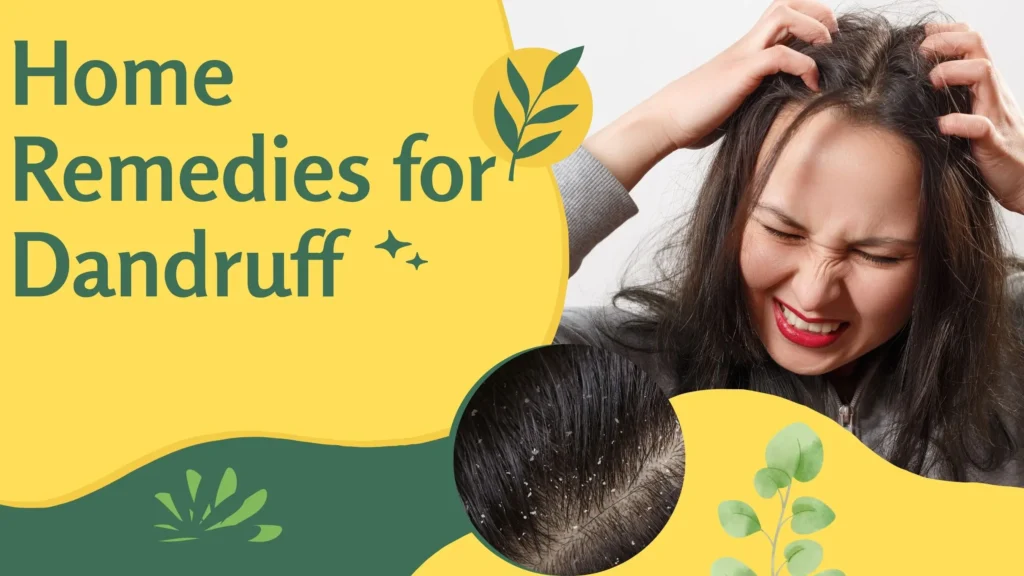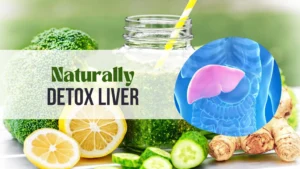Dandruff is a common scalp issue that affects people of all ages, causing discomfort and often leading to embarrassment. While countless shampoos and treatments promise to combat dandruff, many contain harsh chemicals that can irritate the scalp or cause unwanted side effects. There’s a surprising and natural remedy that’s likely sitting right in your kitchen: apple cider vinegar (ACV). Known for its powerful health benefits, apple cider vinegar can help fight dandruff naturally by balancing the scalp’s pH and reducing the buildup of dead skin cells. Know how ACV can be a game-changer in your battle against dandruff and provide you with effective ways to incorporate it into your hair care routine.
Understanding Dandruff: What is it and Why Does it Happen?
Before we delve into how apple cider vinegar helps with dandruff, it’s important to understand what dandruff is and why it occurs. Dandruff is essentially the shedding of dead skin cells from the scalp. Although it’s a natural process for the skin to shed, dandruff occurs when the shedding becomes excessive. Primary cause of dandruff is the presence of a yeast-like fungus called Malassezia. This fungus thrives on the natural oils produced by the scalp and can irritate the skin, leading to an overproduction of skin cells. These excess skin cells die and flake off, resulting in visible dandruff.
Other factors that can contribute to dandruff include:
- Dry Skin: If your scalp is dry, it can flake off, causing dandruff-like symptoms.
- Oily Skin: On the other hand, excessive oil production can also cause dandruff by promoting the growth of the Malassezia fungus.
- Skin Conditions: Conditions like eczema or psoriasis can also lead to flakes on the scalp.
- Hormonal Changes: Hormonal fluctuations, such as those during puberty or pregnancy, can affect scalp health and increase the likelihood of dandruff.
- Stress: High stress levels have been known to trigger or worsen dandruff outbreaks.
Surprising Power of Apple Cider Vinegar in Combating Dandruff
Apple cider vinegar has gained popularity for its incredible versatility in the world of natural health. Its role in battling dandruff is particularly notable, thanks to its natural acidity and potent antifungal properties. When applied to the scalp, apple cider vinegar helps to restore balance by lowering the pH, which in turn prevents the overgrowth of Malassezia, the fungus responsible for dandruff.
Acetic acid in apple cider vinegar works to gently exfoliate the scalp, removing dead skin cells and preventing buildup that could clog hair follicles. This leads to healthier hair growth and a cleaner, less flaky scalp. Apple cider vinegar has anti-inflammatory properties, which can soothe irritation and prevent further scalp damage.
How Apple Cider Vinegar Balances the pH and Reduces Dandruff
PH balance of scalp plays a essential role in maintaining a healthy environment. A balanced scalp pH discourages the growth of fungi like Malassezia, which thrives in an overly alkaline environment. Apple cider vinegar, with its naturally acidic properties, helps restore this balance, making the scalp less hospitable to dandruff-causing fungi.
By adjusting the scalp’s pH and promoting a more acidic environment, apple cider vinegar creates the ideal setting for healthy skin and hair growth. Acidity also helps break down excess oil and product buildup, preventing the clogging of pores, which can contribute to scalp irritation and dandruff.
Top 3 Apple Cider Vinegar-Based Treatments for Dandruff
This section provides step-by-step instructions on three simple and effective treatments using apple cider vinegar to fight dandruff:
- Apple Cider Vinegar Scalp Rinse
- Apple Cider Vinegar and Coconut Oil Treatment
- Apple Cider Vinegar and Tea Tree Oil Mask
Here’s a deeper look into each treatment and how it works to improve scalp health:
1. Apple Cider Vinegar Scalp Rinse
Apple cider vinegar scalp rinse is one of the most straightforward and effective treatments for dandruff. Acidity in apple cider vinegar helps restore the scalp’s natural pH balance, which can often become disrupted by the overuse of shampoos or hair products. By restoring the scalp’s pH, ACV reduces the environment where dandruff-causing fungi thrive, thus leading to fewer flakes.
Key Benefits:
- Helps balance the scalp’s pH
- Removes excess oil and buildup
- Reduces dandruff flakes with regular use
How It Works: Apple cider vinegar breaks down the buildup of dead skin cells and excess oils, allowing the scalp to breathe and regenerate. Rinse also helps prevent dryness and itchiness that often accompanies dandruff.
2. Apple Cider Vinegar and Coconut Oil Treatment
For those with dry and flaky scalps, apple cider vinegar and coconut oil treatment offers deep nourishment while tackling dandruff. Coconut oil is known for its moisturizing properties and ability to penetrate the hair shaft, providing hydration without leaving the scalp greasy. Combined with apple cider vinegar, it not only moisturizes but also addresses the root causes of dandruff, like fungus or yeast imbalances.
Key Benefits:
- Provides intense moisture to dry, flaky scalps
- Combats fungal growth that contributes to dandruff
- Improves overall scalp health and reduces flakiness
How It Works: Coconut oil helps soothe the scalp by locking in moisture, preventing dryness and irritation. Apple cider vinegar works simultaneously to balance the scalp’s pH levels and eliminate flakes. The combined power of these ingredients nourishes the scalp while still tackling dandruff effectively.
3. Apple Cider Vinegar and Tea Tree Oil Mask
For a more targeted treatment, the apple cider vinegar and tea tree oil mask is highly effective in combating dandruff. Tea tree oil is renowned for its antifungal and antibacterial properties, making it a natural remedy for dandruff caused by yeast or bacteria on the scalp. Paired with the acidity of apple cider vinegar, this mask helps clear the scalp of both fungal infections and dead skin buildup, providing long-lasting relief from dandruff.
Key Benefits:
- Soothes an itchy, irritated scalp
- Destroys dandruff-causing bacteria and fungi
- Moisturizes the scalp and prevents further dryness
How It Works: Tea tree oil works to kill off the fungi that may cause dandruff, while the apple cider vinegar helps regulate the scalp’s pH and slough off dead skin cells. Addition of olive oil enhances the mask’s hydrating properties, making it ideal for people with sensitive or dry skin.
Additional Tips for Maximizing Your Apple Cider Vinegar Treatment
While these apple cider vinegar-based treatments are highly effective, following a consistent hair care routine will yield the best results. Here are some extra tips to enhance the effectiveness of these remedies:
- Use ACV consistently: To see noticeable improvements in dandruff, try using one of the above treatments at least 2-3 times a week.
- Avoid harsh hair products: Reduce your use of hair products with heavy chemicals, as they can strip the scalp of natural oils, leading to further dandruff issues.
- Hydrate your scalp: Remember that dandruff can sometimes be linked to dehydration. Drink plenty of water to maintain scalp health from the inside out.
Additional Natural Ingredients to Fight Dandruff
While apple cider vinegar (ACV) is a powerful remedy on its own, combining it with other natural ingredients can enhance its effectiveness and provide additional benefits for your scalp. Here are some key ingredients that work synergistically with ACV to help combat dandruff, nourish the scalp, and reduce flakiness:
1. Coconut Oil
Coconut oil is a highly versatile ingredient that is commonly used for its moisturizing and antimicrobial properties. It contains medium-chain fatty acids, particularly lauric acid, which have antifungal and antibacterial qualities. This makes coconut oil an excellent choice for those struggling with dandruff caused by fungal imbalances on the scalp.
- How It Helps: Coconut oil penetrates the hair shaft and scalp deeply, helping to lock in moisture, soothe dry skin, and prevent flakiness. Its natural antifungal properties complement ACV by working to control yeast overgrowth, which can contribute to dandruff. Coconut oil reduces scalp inflammation and irritation, making it a great remedy for sensitive skin.
- How to Use: Mix coconut oil with apple cider vinegar to create a nourishing scalp treatment. Apply it directly to your scalp, massage gently, and leave it on for 20–30 minutes before rinsing. This combination will help hydrate, soothe, and fight dandruff effectively.
2. Tea Tree Oil
Tea tree oil is another powerhouse in the fight against dandruff. This essential oil has been widely praised for its antifungal, antibacterial, and anti-inflammatory properties. Tea tree oil helps combat the underlying fungal infection that often causes dandruff and soothes scalp irritation, reducing itching and redness.
- How It Helps: Tea tree oil helps eliminate dandruff-causing fungi, such as Malassezia, which thrives on oily scalp surfaces. It also helps in reducing inflammation and soothing the discomfort that comes with dandruff flare-ups. When combined with the acidic nature of apple cider vinegar, it can work wonders to restore scalp balance and cleanliness.
- How to Use: Add a few drops of tea tree oil to your apple cider vinegar rinse or mix it with a carrier oil like coconut oil or olive oil for a deep scalp massage. This will help target the root cause of dandruff and alleviate scalp irritation.
3. Aloe Vera
Aloe vera is another soothing natural ingredient known for its ability to calm inflammation and provide hydration. It has a cooling effect on the scalp, making it ideal for those with sensitive or irritated skin. Its anti-inflammatory and antimicrobial properties also make it useful for addressing dandruff-related issues.
- How It Helps: Aloe vera helps alleviate dryness and itching associated with dandruff by providing moisture and soothing the scalp. It also contains enzymes that help break down dead skin cells, which can reduce the buildup of flakes. Aloe vera also aids in balancing the scalp’s natural oils, preventing both dryness and excessive oil production that contribute to dandruff.
- How to Use: You can mix aloe vera gel with apple cider vinegar for a scalp mask or a soothing rinse. Apply it to the scalp, leave it on for 20 minutes, and rinse thoroughly. Aloe vera’s cooling properties, combined with ACV, can help restore balance to the scalp.
4. Lemon Juice
Lemon juice has natural acidic properties that help balance the pH of the scalp, preventing fungal overgrowth and improving overall scalp health. Its acidity helps break down the buildup of oils and dead skin cells, making it a great natural exfoliant for the scalp.
- How It Helps: The natural acids in lemon juice help apple cider vinegar by promoting a balanced scalp environment. Lemon juice works as an exfoliant, loosening dead skin cells and flakes that contribute to dandruff. It also has mild antibacterial properties that help prevent the growth of bacteria or fungi that could worsen dandruff conditions.
- How to Use: Mix freshly squeezed lemon juice with apple cider vinegar for a scalp rinse or a DIY mask. Apply this mixture to the scalp, massage gently, and leave it on for 5–10 minutes before rinsing. This treatment can help restore your scalp’s natural pH and eliminate dandruff.
5. Olive Oil
Olive oil is another beneficial oil that works wonders for scalp care. It’s rich in antioxidants and fatty acids, which nourish and hydrate the scalp. It also has anti-inflammatory properties that can help soothe an irritated scalp.
- How It Helps: When combined with apple cider vinegar, olive oil provides extra moisture and helps relieve dryness and itching associated with dandruff. It prevents the scalp from becoming too dry, which can lead to further irritation. Olive oil is perfect for those with a dry or flaky scalp, as it replenishes moisture while helping to fight dandruff.
- How to Use: Combine olive oil with apple cider vinegar and a few drops of tea tree oil for a deeply nourishing treatment. Apply the mixture to the scalp, leave it on for about 30 minutes, and then wash your hair with a mild shampoo.
6. Neem Leaves (Azadirachta indica)
Neem leaves are another powerful natural ingredient known for their antifungal and antibacterial properties. It has been used for centuries in Ayurvedic medicine to treat a wide variety of scalp conditions, including dandruff.
- How It Helps: Neem helps combat the bacteria and fungi that can lead to dandruff. It also has soothing properties that can reduce scalp irritation and inflammation, making it an excellent addition to your dandruff-fighting routine.
- How to Use: Boil a handful of neem leaves in water, allow it to cool, and use the resulting infusion as a final rinse after shampooing. This will help cleanse the scalp, reduce dandruff, and improve overall scalp health.
Proven Tips to Prevent Dandruff from Returning
While apple cider vinegar can be a highly effective treatment, prevention is always better than cure. Here are a few tips to help prevent dandruff from recurring:
- Shampoo Regularly: Regular shampooing helps remove oil, dirt, and product buildup, which can contribute to dandruff.
- Hydrate Your Scalp: Dry skin can lead to flakes, so use moisturizing treatments like coconut oil or aloe vera to keep your scalp hydrated.
- Reduce Stress: High-stress levels can trigger dandruff flare-ups, so finding ways to relax and manage stress can be beneficial.
- Eat a Balanced Diet: Nutrients like zinc, omega-3 fatty acids, and B vitamins support healthy skin and scalp, reducing the likelihood of dandruff.
Is Apple Cider Vinegar Safe for Everyone?
While apple cider vinegar is a natural remedy, it’s important to use it with caution. For those with sensitive skin, ACV may cause irritation, so it’s essential to dilute it with water before application. Always perform a patch test before applying the solution to your scalp to ensure that you’re not allergic or sensitive to the ingredient.
FAQs
What is the best way to use apple cider vinegar for dandruff?
The most effective method is using a scalp rinse by mixing 2 tablespoons of apple cider vinegar with 1 cup of water, then massaging it into the scalp after shampooing.
How often should I use apple cider vinegar for dandruff treatment?
It’s recommended to apply the apple cider vinegar rinse 2-3 times a week for best results in reducing dandruff flakes and improving scalp health.
Can apple cider vinegar cause scalp irritation?
Although rare, apple cider vinegar may cause irritation for sensitive scalps. It’s advisable to dilute it with water and patch test before full application.
Can apple cider vinegar alone eliminate dandruff?
While apple cider vinegar is highly effective in treating dandruff, combining it with other natural ingredients like coconut oil or tea tree oil may enhance its benefits.
What are the benefits of using coconut oil for dandruff?
Coconut oil hydrates the scalp and has natural antifungal properties, making it a great addition to apple cider vinegar treatments for dandruff.
Is tea tree oil safe to use for dandruff treatment?
Yes, tea tree oil is safe for most people. It has antifungal and antibacterial properties that help fight dandruff-causing fungi and soothe the scalp.
How long should I leave the apple cider vinegar treatment on my scalp?
For the best results, leave the apple cider vinegar treatment on your scalp for 5-10 minutes before rinsing it off with water.
Can lemon juice help with dandruff?
Lemon juice helps balance the pH of the scalp and has antifungal properties that can reduce dandruff when combined with apple cider vinegar.
Are these treatments safe for sensitive skin or children?
Yes, but always dilute the ingredients and perform a patch test. Consult with a pediatrician before using these treatments on children’s scalps.
How long will it take to see results using these natural remedies?
Results vary, but most people notice a reduction in dandruff flakes within 2-3 weeks of regular treatment with apple cider vinegar and other natural ingredients.






